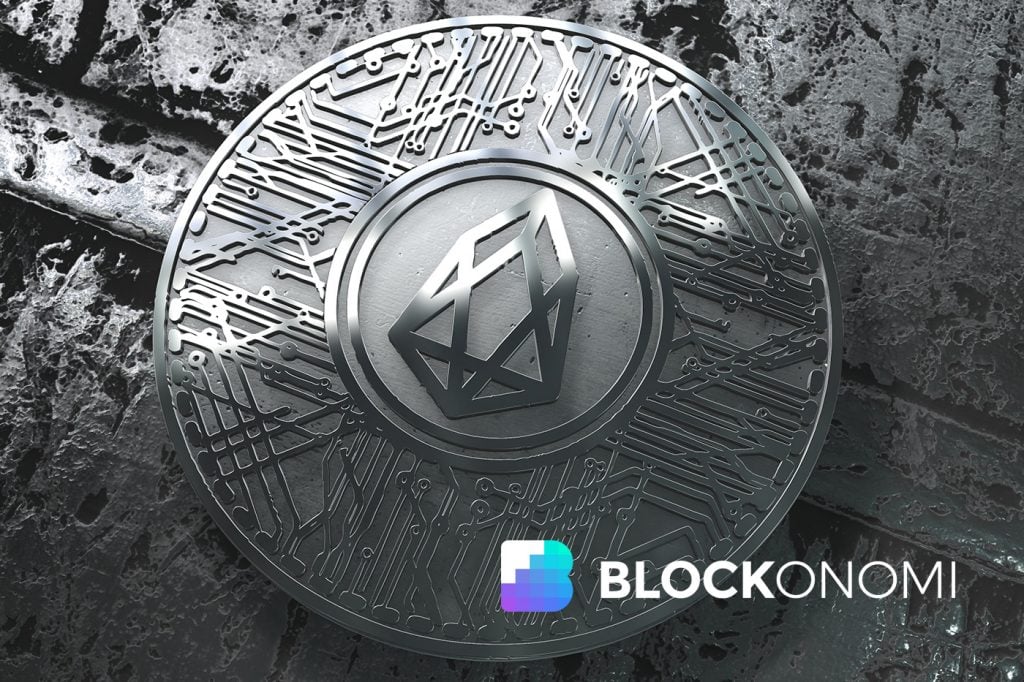Under the delegated proof-of-stake (DPoS) consensus style of EOS, token holders participate in ongoing, on-chain votes to decide who the network’s top 21 block producers, or BPs, will be from dozens of contenders groups. These approved BPs then create the blocks that comprise the EOS blockchain.
Adhering to the EOS Constitution, these block producers not only power the project’s network but also lend development and community support to foster the EOS ecosystem and further their chances of being voted in as a top BP.

As with any fledgling blockchain project, EOS’s design has its advantages and disadvantages. Perhaps one of the most commonly cited downsides of its model pertains to the chance of block producers misbehaving or colluding, which, when done discreetly, can make it difficult for the EOS community to take action.
Conversely, if BP misbehavior is done flagrantly, voting is a recourse to punish those responsible. It’s this dynamic we’ve seen this week, as block producer group EOS New York has posted data to Twitter that suggests another BP had been engaging in misconduct contrary to the EOS Constitution.
“This Is Unacceptable”
On November 27th, EOS New York published a tweetstorm centered on domain searches for six EOS block producer projects.
Providing a screenshot of the searches, EOS New York asserted that a single entity was obviously behind the six separate BPs since all six of their associated domains were registered at the same time — November 20th, 2019, at 10:34 — by the same email address, eoshenzhen@gmail.com, which in the very least was nominally linked to the EOS Shenzhen BP group.
Upon that revelation, EOS New York took to the community to call out the misbehavior, noting they had started a petition among major BPs:
“Six registered producers on EOS are managed by a single entity. This is unacceptable. We have requested the signatures of the top 50 registered producers so that all token-holders may know who does and who does not condone such impropriety.”
4/ We are therefore proposing the removal of the following registered producers: stargalaxybp, validatoreos, eoszeusiobp1, eosunioniobp, eosathenabp1, and eosrainbowbp.
— Kevin Rose (@kroseranger) November 27, 2019
Specifically, the misconduct outed by EOS New York appears to be in direct violation of Article IV of the EOS Constitution, the “No Vote Buying” clause, which reads:
“No Member shall offer nor accept anything of value in exchange for a vote of any type, nor shall any Member unduly influence the vote of another.”
The emphasis here is the ability to “unduly influence the vote of another” BP, which is exactly what running six BPs in shadowy fashion is committing. Indeed, these managed block producers don’t have the sovereignty afforded to them under their project’s constitution because they act in extension of another BP.
Moreover, having a single entity control multiple BPs is also problematic because it gives one group unfair voting power when it comes to amending the EOS Constitution itself, per the process illustrated in the constitution’s Article XI.
Notably, it appears EOS voters have already responded punitively, as at press time EOS Shenzhen had already lost more than 348,000 votes in the current BP voting round.
Zooming out, concerns over misbehaving block producers has dogged EOS since at least last fall, when the EOSONE group published a report that some Chinese BPs were exchanging votes and otherwise colluding in general.
Vitalik Buterin Suggests Sharding
Ethereum creator put his two gwei in, arguing on Twitter that EOS’s stakeholders should consider adopting sharding technology in such a way that there would be “little-to-no gains from two validators sharing infrastructure,” as EOS New York’s exposé suggested was occurring.
Honestly I think EOS should adopt sharding and assign each block producer to a random shard so that there are little-to-no gains from two validators sharing infrastructure as they'd have different data to validate. Would increase their TPS too.https://t.co/pmmXJSbjUK
— vitalik.eth (@VitalikButerin) November 28, 2019
Another added benefit of adopting sharding in this way per Buterin? It would improve the transaction throughput of EOS even further. However, it will be up to the EOS community to weigh the pros and cons of how best to insulate their network from impropriety.




